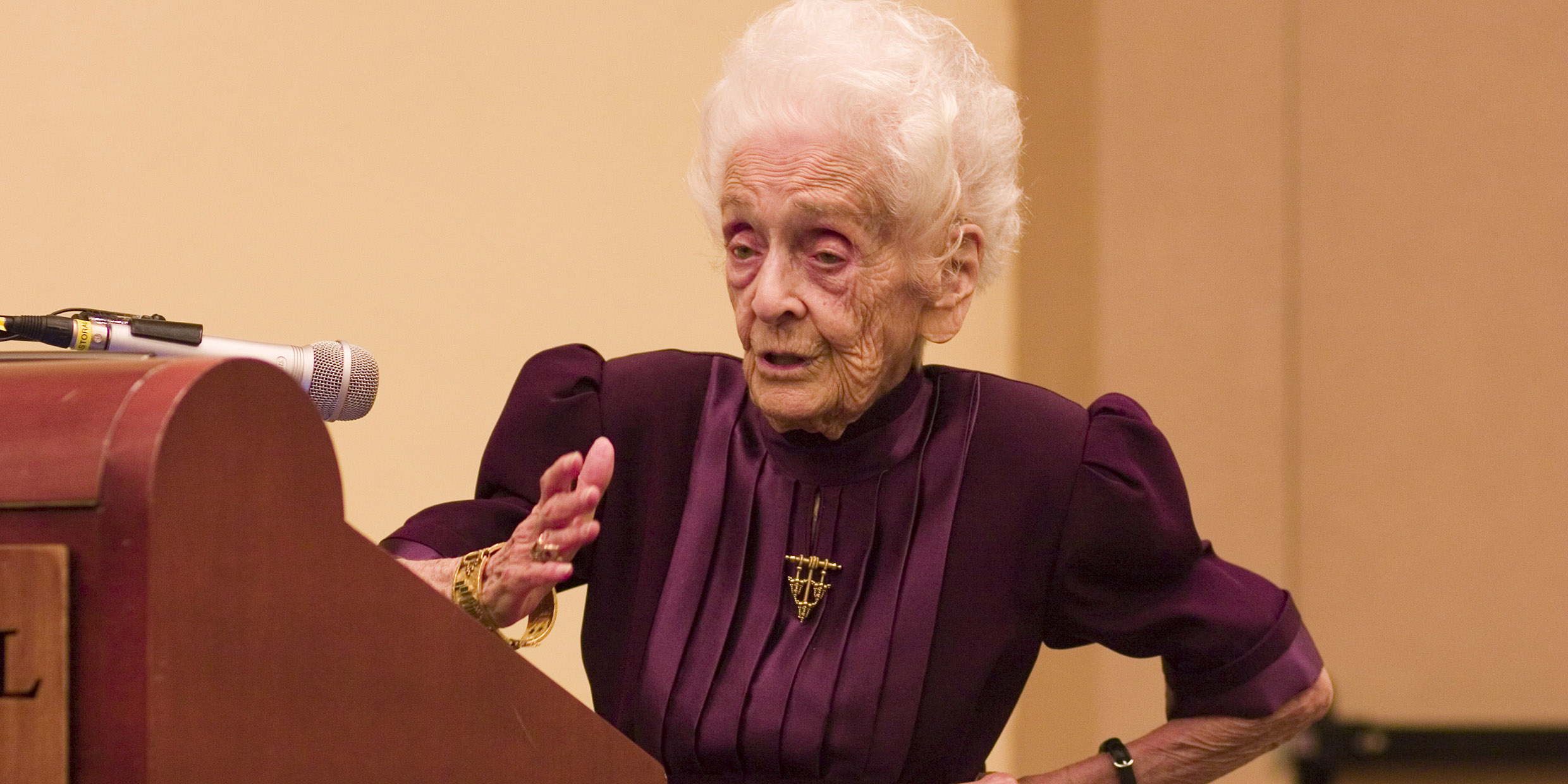Originally published 17 October 1988
Among the barriers to equality faced by women in science is the deeply entrenched notion that women are subjective, personal, and emotional, whereas men — like science — are objective, impersonal, and rational.
Women, men, and science cannot be categorized so simply, as is made abundantly clear by two recent books on eminent women scientists: Susan Quinn’s superb biography of pioneering psychoanalyst Karen Horney (A Mind of Her Own: A Life of Karen Horney), and the autobiography of Nobel-prizewinning neurobiologist Rita Levi-Montalcini (In Praise of Imperfection: My Life and Work).
Karen Danielsen was born in 1885 in a suburb of Hamburg, Germany. Her father was a stern Lutheran sea captain who never doubted woman’s God-given responsibility to supply his creature comforts. Karen’s older brother Berndt was the adored first child, good-looking, charming, and understood to be “smarter” than his plain sister. Berndt, of course, had easy access to preparatory school and university.
In turn-of-the-century Germany, education for girls focused mostly on home economics, child care, and religion, with a few aesthetic subjects thrown in. In 1900, preparatory classes for girls were offered for the first time in Hamburg, and by shrewd lobbying Karen won her father’s reluctant permission to attend. Six years later she matriculated at the Medical School at Freiburg as the only woman in her class.
Not dissuaded from her goal
Among Karen’s professors were those who believed women were physically and temperamentally unsuited for the study of natural sciences, especially medicine. A doctor of the time wrote: “One must consider the lesser strength of women, the weaker skeletal structure, the smaller capacity of the heart — as well as menstruation, eventual pregnancy, childbirth — menopause, nervousness, hysteria, etc.” Karen was affected by these discouraging pronouncements, but not dissuaded from her goal.
In 1909 she joined Oskar Horney in a difficult marriage that was to last 16 years and produce three daughters. At about the same time she discovered psychoanalysis, and embarked upon a long and brilliant career as a student of the mind, first as a champion of the theories of Freud, and later as a rebel against Freudian orthodoxy.
Independence of mind was Horney’s most consistent characteristic. It led her to suggest that the basis of female psychology was something more complex than penis envy; if girls experience “admiring envy,” she said, it may have to do with the preferential treatment accorded males, and the greater freedom men enjoy in their personal and professional lives. For this and other challenges to accepted Freudian doctrine she was driven from the New York Psychoanalytic Society in 1941.
Karen Horney’s life was full of contradictions. She was a rebel who craved acceptance, an objective scientist torn by shifting passions and allegiances. Her relationships with colleagues were often contentious, and she suffered severe bouts of depression. Personally and professionally she was a victim of the attitudes toward women that she sought energetically to undo.
Rita Levi-Montalcini’s recollections of her early family life in Turin, Italy, suggest a more convivial environment than prevailed in the Danielsen household. Nevertheless, young Levi-Montalcini was made painfully aware of the secondary status of her gender. Her father’s word prevailed on all household matters, and the son and daughters of the family were offered unequal opportunities for education. When, after finishing the traditional girl’s course of study, she decided to pursue a career in medicine, her father only begrudgingly agreed. In 1930 she won a place at the Turin School of Medicine, as one of a handful of women.
Levi-Montalcini soon established herself as the protégé of the celebrated anatomist Giuseppe Levi. An early research problem set by the professor, the study of nerve cells, became the student’s career and lifelong obsession. In 1986 Levi-Montalcini, together with Stanley Cohen, won the Nobel Prize in Medicine for their discovery of Nerve Growth Factor, a landmark in the study of cell growth, including the biology of cancer.
Overcoming obstacles
In her pursuit of the secrets of nerve cell growth, Levi-Montalcini single-mindedly overcame all obstacles. An example: When Fascist racial laws drove Jews from Italian universities, she continued her work in a makeshift laboratory set up in the tiny kitchen of a Piedmont farmhouse. Because food was scarce, she cooked up and served to her family the eggs from which she extracted chick embryos for experiments.
The title of Levi-Montalcini’s autobiography, In Praise of Imperfection, refers to lines of a poem by Yeats:
"The intellect of man is forced to choose
Perfection of the life, or of the work,
And if it take the second must refuse
A heavenly mansion, raging in the dark."
In spite of the title of her book, it is clear that Levi-Montalcini chose perfection of the work. Forgoing marriage and motherhood, she devoted herself to research, and if she raged it is not apparent in her autobiography, which is marked by steady loyalties, gentle humor, and compassion. Levi-Montalcini proved by exacting example that women are the equal of men in every aspect of their aptitude for science.
Karen Horney choose the other of Yeats’s alternatives — perfection of the life — and never ceased to rage against the received doctrine that women are incomplete (and imperfect) men. She attacked head-on myths enshrined in science itself, and nearly destroyed herself in the process. Both psychoanalyst and neurobiologist, in different ways but with equal courage, cleared paths that young women entering science today might follow.



